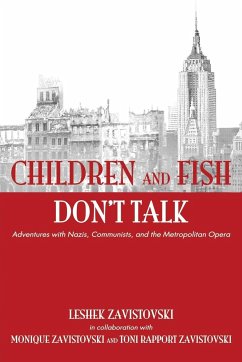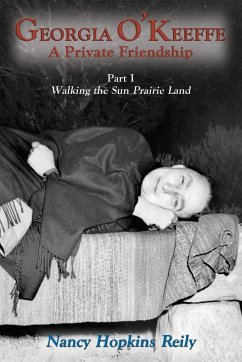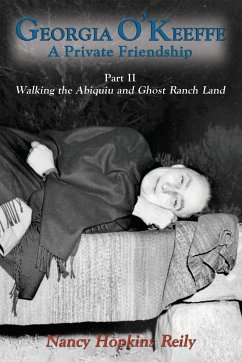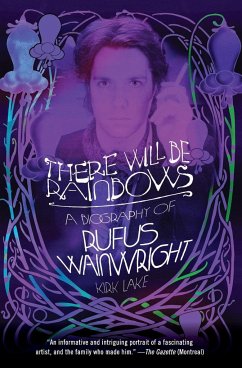
Children and Fish Don't Talk (Softcover)

PAYBACK Punkte
22 °P sammeln!
In the winter of 1964, three weeks after defecting from Poland and the night after playing a flashy holiday performance with the Rockettes at Radio City, Leshek Zavistovski was arrested and faced deportation to a gulag. His troubles started, however, long before he was a fugitive cellist behind bars. As a four-year-old child he was abandoned in a remote Polish village, kidnapped, and swept into the advancing Red Army. Thus his perils began. "Children and Fish Don't Talk" is more than Leshek's dramatic story. He recounts in thrilling detail his father's defiance against the Nazis in the Warsaw ...
In the winter of 1964, three weeks after defecting from Poland and the night after playing a flashy holiday performance with the Rockettes at Radio City, Leshek Zavistovski was arrested and faced deportation to a gulag. His troubles started, however, long before he was a fugitive cellist behind bars. As a four-year-old child he was abandoned in a remote Polish village, kidnapped, and swept into the advancing Red Army. Thus his perils began. "Children and Fish Don't Talk" is more than Leshek's dramatic story. He recounts in thrilling detail his father's defiance against the Nazis in the Warsaw Uprising, the ghastly deeds of Cossacks and the Soviet KGB, the hilarious antics of a foreigner at the height of McCarthyism, the vibrant world of the Metropolitan Opera in the 1960s, his elderly mother's foxy attempt to crush the Iron Curtain with homemade posters and glue, and numerous encounters with Polish sausage. It is a breathtaking tale of survival, taking readers from the poverty of post-war Poland to the lavish dinner tables of America's rich and famous, an adventure as harrowing as it is funny. And that's because it's true. Cellist and sculptor Leshek Zavistovski was born in Warsaw, Poland on the eve of World War II and became the youngest member of the Warsaw National Philharmonic and the Metropolitan Opera Orchestra. Monique Zavistovski is a filmmaker raised on the edge of the Sleepy Hollow woods. Her work has won awards worldwide, including at Sundance and the Emmys. Fulbright scholar and violinist Toni Rapport Zavistovski recorded for Warsaw Radio with W¿adys¿aw Szpilman, the subject of Roman Polanski's Oscar-winning film "The Pianist," and was Assistant Principal Violin of the Metropolitan Opera Orchestra. Index, Glossary, Bibliography.












